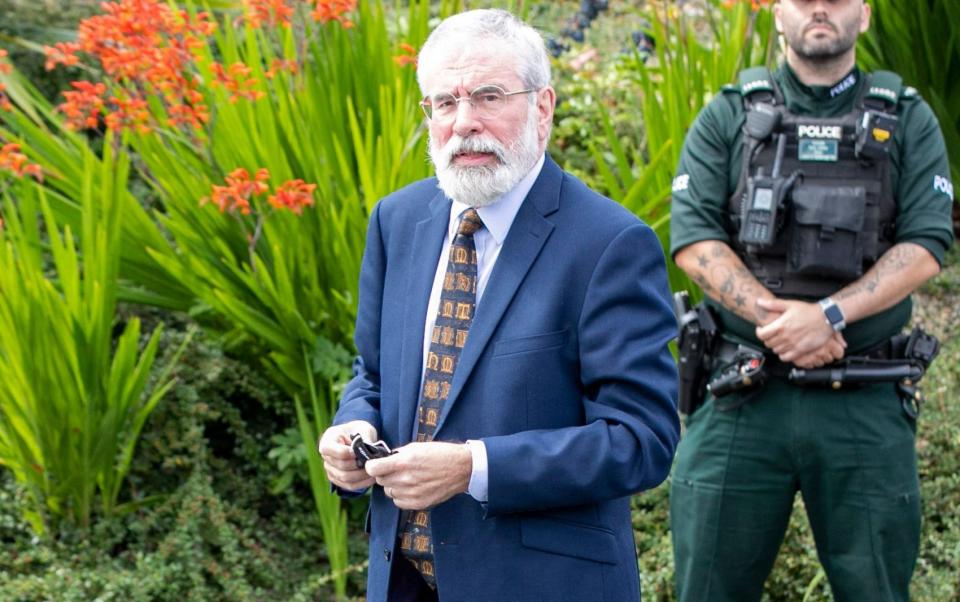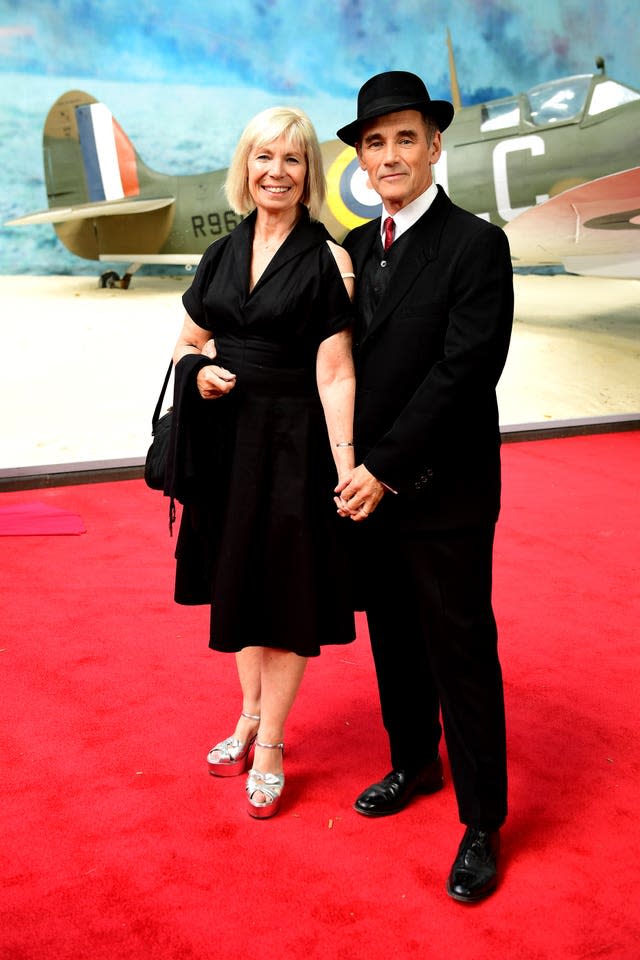Elizabeth I loomed large over Lord Hermer’s right shoulder as the new Attorney General strode to the podium to deliver his first major speech.
As his eyes scanned the room, over the heads of an audience packed with lawyers, they would have settled on an imposing wooden edifice directly opposite. Known as the Armada screen, it was reputedly crafted from the oak timbers of a galleon captured during victory over the Spanish invaders.
This Elizabethan theme – harking back to an era of gunboat diplomacy and state-sanctioned piracy – was an incongruous backdrop for the speech.
Yet it was in these historic surroundings last October that Sir Keir Starmer’s new legal chief quietly lifted the lid on Labour’s fervour for international law.
ADVERTISEMENT
Delivered in a dulcet tone, this highly political speech paved the way for a series of government decisions that have baffled MPs and the public alike.
Lord Hermer’s remarks help explain why No 10 has been so determined to give away the Chagos Islands in the face of almost universal opposition.
They also provide a rationale for the decision to open the door for a compensation payout to Gerry Adams, despite the obvious backlash it would spark.
During his lecture, delivered at Gray’s Inn, the new Attorney General said a fervent obeyance of international law would help fight “the populist challenge”.
He argued that Britain must not only elevate international law above its own but actively go “further than simply meeting our obligations” to “restore our reputation”.
In a particularly telling passage, he acknowledged this was to persuade former colonies in the “Global South” that human rights were not an “imperialist construct”.
ADVERTISEMENT
“The UK will once again be a champion for international courts and institutions, taking positive steps to promote their importance and to rebuild the respect for them that the populists have sought to destroy,” he told his audience.
“International law is not simply some kind of optional add-on, with which states can pick or choose whether to comply.
“Our reputation as a country that can be trusted to comply with its international law obligations, and has a robust adherence to the rule of law, is essential to our ability to grow the economy.”

Lord Hermer defended the proposed deal to give the Chagos Islands away to Mauritius, which by this point had already prompted a heavy backlash.
He said it showed the Government’s “deep commitment to international law” and “made plain our commitment to our cornerstone international institutions”.
ADVERTISEMENT
The Attorney General similarly said Labour’s controversial decision to limit arms exports to Israel showed that it was “applying law, not politics”.
That speech, delivered on October 15, was the first of several in which Lord Hermer would return again and again to international law as central to his world view.
Nine days later he travelled to the UN General Assembly, in New York, where he repeated his message to the cavernous hall of international delegates.
There he opened by thanking the International Court of Justice (ICJ), which ruled against Britain in the Chagos case, “for the quality of their judgment”.
“I would like on behalf of the United Kingdom to express my gratitude to all members of the court and the registry for their continued commitment to the sound administration of justice and the peaceful resolution of international disputes,” he said.
ADVERTISEMENT
“And as the globe currently faces critical challenges, there has never been a more important moment for us all to reaffirm our commitment to that ideal, to the international rule of law and thus to the important world of the ICJ.”
This week, as ministers scrabbled around for ideas to kickstart the economy, Lord Hermer once again returned to international law as the answer.
He said Britain would reap the “benefits” of an absolutist approach which would mean “global free trade, investment flows and international commerce can flourish”.
“International law and support for the international legal order is beneficial not just to the UK economy but to building prosperity around the globe,” he said.
“It helps us move towards a world in which disputes are settled in courtrooms and arbitration centres rather than battlefields.”

Lord Hermer’s worldview is thought to match closely with that of Sir Keir, who was his mentor whilst the pair were barristers at the same chambers.
Danny Kruger, the Tory MP for East Wiltshire, said that the Prime Minister’s “core political belief is that international law binds Government and Parliament”.
He said this had led to the “mad” decision on the Chagos and “bad” decisions such as paving the way for potential compensation for Mr Adams.
“The only higher law is the natural law, which is in us all and only the voters can properly adjudicate,” he said.
“Meanwhile practical sovereignty resides in the King in Parliament – the executive, accountable to MPs. Treaties between nations are inferior to this.”
Boris Johnson, the former prime minister, said that Lord Hermer was at the heart of a “small cabal of Left-wing lawyers” which “Britain is now governed by”.
Writing in the Daily Mail, he said: “Some say that he and Starmer are just pernickety, and that they have a cult of ‘crazed legal maximalism’. I don’t think that fully reflects the sheer perversity of the Lefty-lawyer mentality.
“He is the type of Lefty who tends to believe that in any dispute, his own country is almost certainly in the wrong; whether we are talking about Northern Ireland or islands in the Indian Ocean.”
EMEA Tribune is not involved in this news article, it is taken from our partners and or from the News Agencies. Copyright and Credit go to the News Agencies, email news@emeatribune.com Follow our WhatsApp verified Channel




